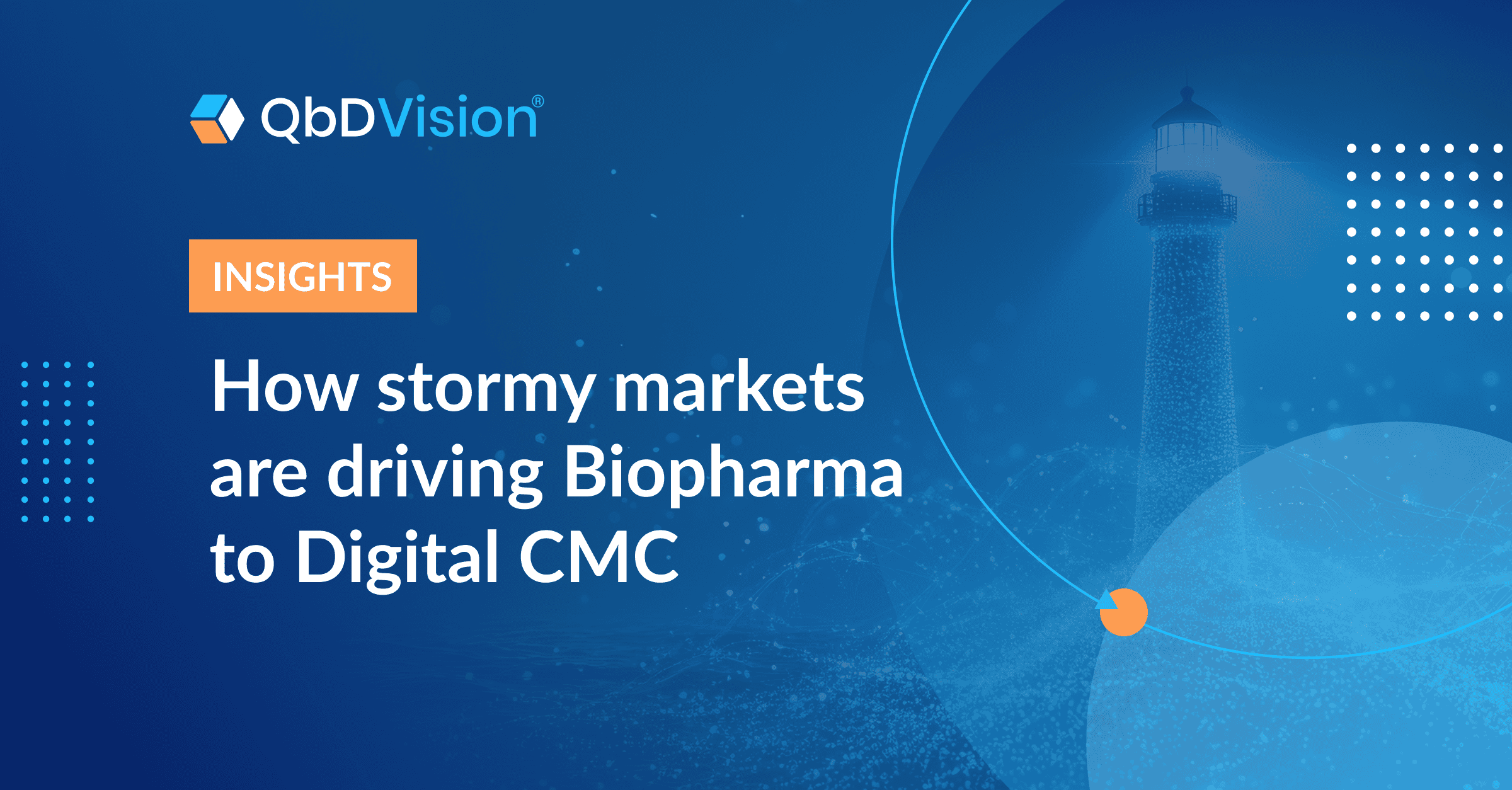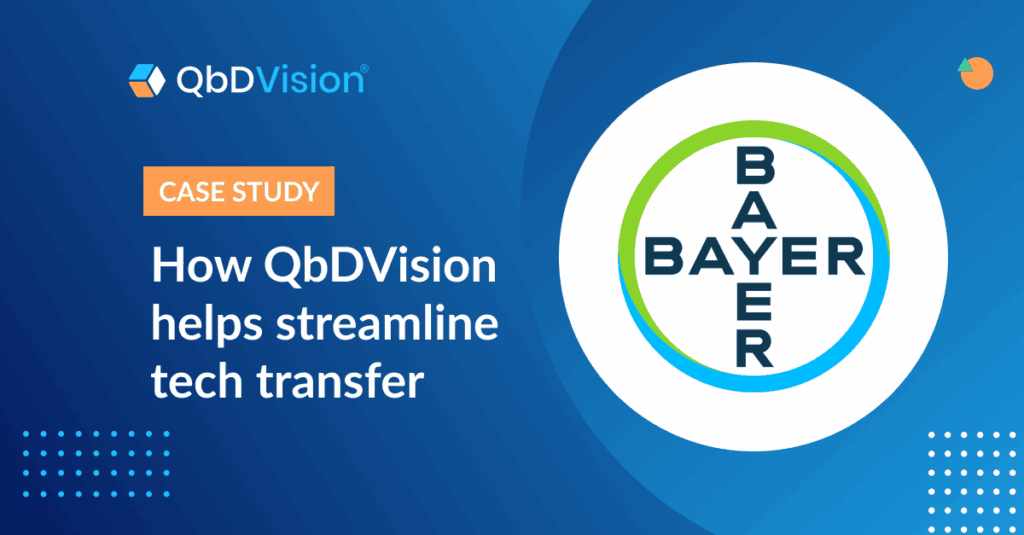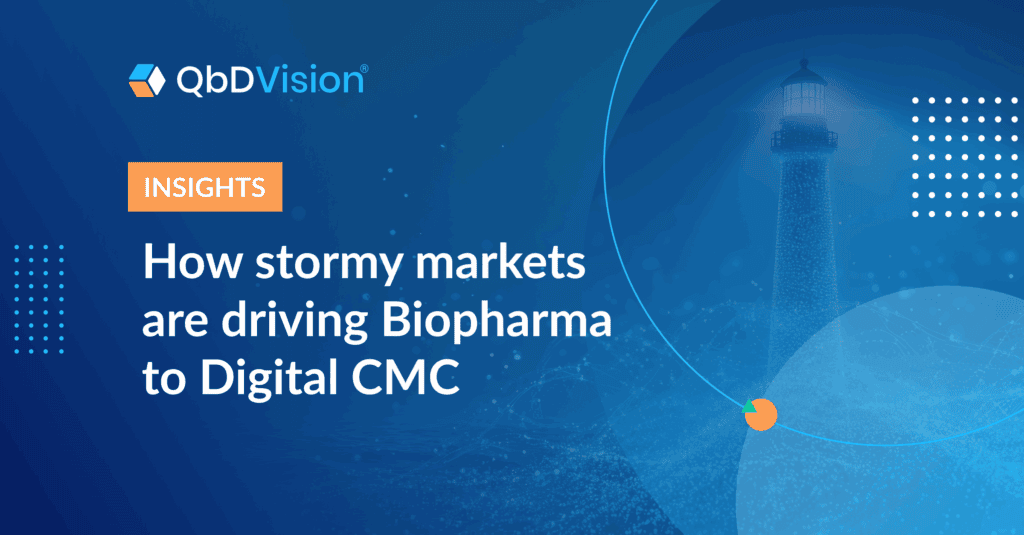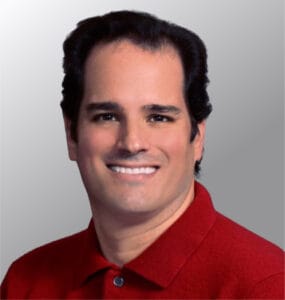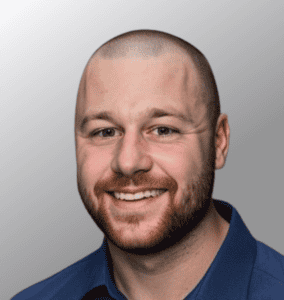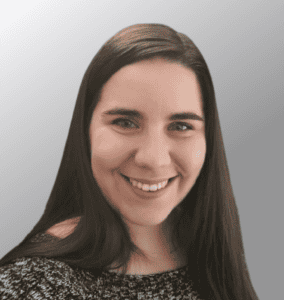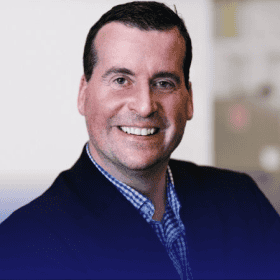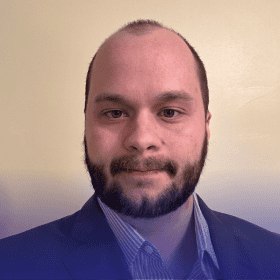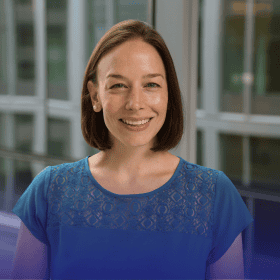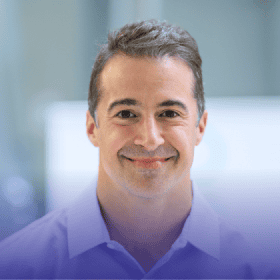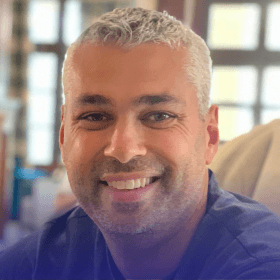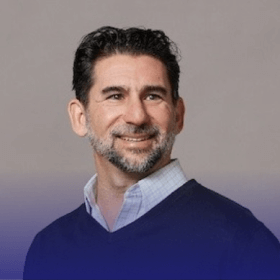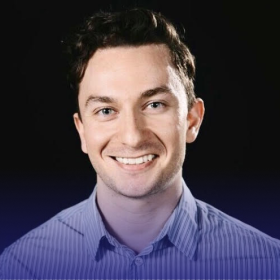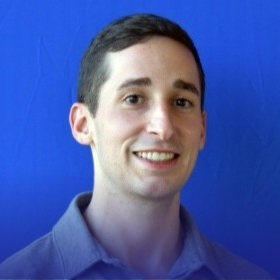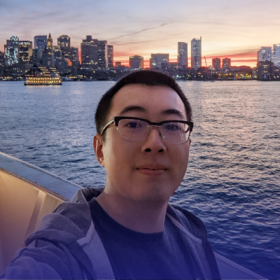TL/DR:
- Facing unprecedented economic turmoil, biopharma companies are shifting their focus from pipeline strategy to maximizing the resilience of core operations like CMC.
- With tariffs roiling global resource flows, drug developers are rapidly rethinking their supply chains and aligning with pressure to reshore them.
- Under pressure from regulators and the market, pharma and biotech organizations are racing to deploy AI — but finding they need far more than vast data resources to scale successfully.
- Chaotic FDA restructuring has left a leadership gap that may be filled by regulators with a variety of views on digital technology, creating lots of questions about how industry should prepare.
- Rolling RIFs are draining the knowledge drug developers need to prepare for an AI-powered future, and driving a surge in demand for knowledge management solutions.
Kansas? This storm may send biopharma to a whole different planet.
A top industry publisher already captured the vibe perfectly, so we’ll just go with it: For Biopharma, 2025 is officially the year of “Uncertainty on Steroids.”
Perfect storm? How about “F7 hurricane.” Supply chains, barely steady after the pandemic, are being rocked by tariffs and geopolitical tensions. The AI silver bullet is running into the Kevlar deployment reality of diffused and poorly organized knowledge — knowledge that may have walked out the door with employees impacted by RIFs.
And just when companies most need regulatory clarity, the FDA is in the middle of some… okay, let’s just stick with “restructuring.” Everyone desperately needs clear guidance on a wave of transformative new technologies, and HHS recently replaced its Chief AI Officer with a Yale undergrad.
Okay, deep breath — because even amid crises like these, there are always opportunities for a win. And that’s never been more true for today’s CMC programs.
Let’s take a closer look at some of the biggest challenges technical development is facing, and how Digital CMC is helping smart leaders navigate them with confidence.
And you thought patent cliffs were scary: Market volatility hits eleven for biopharma
Heading into 2024, biopharma already had some major hurdles ahead. Soaring costs, stagnant R&D productivity, frozen M&A, “tectonic” patent cliffs — the forecast was already looking a little choppy, despite glimmers of optimism in January.
But since then… oh my.
We’ll see your “market headwinds” and raise you a slew of market-model threats: a tariff-driven trade war, unpredictable trade policy, proposed cuts to Medicare, and aggressive “pricing policy” maneuvers, just for starters. Capital and M&A markets were already constrained by high interest rates; now, they’re hiding in the bathtub under a mattress. With risks piling on risks, Q1’s cautious “wait and see” has turned into full-on “hunker down and hold on.”
Long-term pipeline bets? Let’s circle back to that next quarter.
Today, no surprise, it’s all about agility, resilience, and risk management. For CMC programs, that means one thing above all: It’s no longer enough to simply know where those risks may arise in a particular process, workflow, or set of CPPs. Proactive identification, isolation, and control are now the mandate, not the goal.
In practice, this also means that what was once tacitly acceptable in CMC data management SOPs is now anathema when any unexpected disruption can be the one that derails an entire organization. CMC programs are on universal notice: To manage a threat level like today’s, the data they capture needs to deliver a completely different level of utility. The kind that helps their organization sense, assess, and respond to process risks long before they escalate.
This is just one of many areas where a platform like QbDVision is becoming essential for the CMC tech stack. With Digital CMC infrastructure integrating every datapoint into an ever-evolving knowledge model, it can take users just a few clicks to spot risks, address process disconnects, and identify hazardous patterns — instead of weeks of meetings. That’s exactly the kind of insight organizations need to modify workflows sooner, adapt processes more confidently, and ensure program resilience before disruptions hit.
Wondering which one of those disruptions might be first in line? Look no further than your suppliers list.
Look homeward, supply chains: The Great Reshoring may be on the way
It was nice while it lasted: For a sweet few quarters there, it felt like global supply chains had finally settled back to something like stability after years of COVID disruptions.
Rug pull!
Flash forward, and those supposedly once-in-a-generation pandemic disruptions now look like just the opening chapter. Courtesy of a new wave of tariffs — then the changes to those tariffs, then the reversal of the changes — industry supply chains are right back on the front lines again.
Today, though, the latest round of sourcing disruptions isn’t “just” causing materials shortages, delayed batches, and stock shortages. It’s global geopolitical forces driving drug developers to rethink their entire supply networks for an emerging new age of protectionism — no mean feat for an industry that imported $58 billion in raw materials in 2024 alone. And as both tariff threats and political pressures converge on those businesses, it’s becoming increasingly clear which way any changes will point: Closer to home.
Reshoring, to borrow a phrase, is the new black — at least for biopharma organizations navigating a new world of intertwining operational, logistic, and geopolitical risks. New and impending directives are piling on the homeward pressure, including recent EOs focused on domestic drug manufacturing, the ever-looming Biosecure Act, and the Critical Medicines Act in the EU.
There’s scant subtext in these mandates: They’re about pressuring drug developers to what may be the largest and most concentrated flood of homeward tech transfers our industry has ever seen. Organizations most exposed to “problematic” sources like China and India may feel it first. But soon, the whole industry may need to prepare for an unprecedented migration of processes, data, and know-how.
If you’re already bracing for that phenomenon, though, here’s some encouraging news: Drug developers and manufacturers have never been better equipped to accelerate the tech transfer process. Bringing all those resources home has never been easier.
Indeed, there’s already an array of Digital CMC methodologies and technologies with a proven impact on tech transfer processes, timelines, and cost structures — from streamlining knowledge exchange, to simplifying gap analysis, expediting compliance checkpoints, and simply reducing meeting loads. With a solution like QbDVision, sites can compare processes, spot variances, and exchange entire knowledge bases in the space of a few seconds, shaving weeks and months from onerous transfer timelines.
It’s time CMC leaders could desperately use for another urgent priority: Figuring out what to do with AI.
The AI revolution is here… but industry readiness? That’s more complicated.
The big news: AI isn’t an emerging technology with big future potential for biopharma. It’s here, it’s embedded, and it’s already transforming the drug development process, with 86% of life sciences organizations now actively deploying AI solutions or planning to do so.
And that includes plenty of their CMC programs.
But behind the headlines, more and more of these organizations are discovering the same thing: There’s a big difference between deploying AI solutions and scaling them to the level of P&L impact. And it’s the difference between lakes of raw data and a strong foundation of structured knowledge.
That reality was spelled out by multiple transformation experts at the Digital CMC Summit earlier this year (remember those halcyon days?): While “general-purpose” AI can be powered by equally general data, models with CMC applications will need much more specialized training. Specifically, they need all the detailed context, relational insight, and both lateral and longitudinal understanding of every process they may generate or analyze.
If you’ve ever tried to gather that kind of knowledge for your own CMC program, you can see the challenge.
To not just deploy but scale AI, drug developers need much more than data (of which they already have lots, and lots, and lots). They need a foundation of training data that has been organized, integrated, and contextualized — in other words, knowledge. The kind that can tell a model not just what an output should be, but why, within what acceptable variances, due to what factors, under which conditions, when, and where. And that, all too often, is still in limited supply for many organizations racing to harness AI.
Without that foundation, even the most sophisticated models risk generating outputs that sound reasonable but miss critical nuances. Worse, they may deliver incomplete, misleading, or unverifiable results. Consequently, effective and comprehensive knowledge management has rapidly become the single greatest rate-limiting factor in successful, at-scale AI deployment within CMC programs — and one that’s driving rapid enterprise adoption of platforms like QbDVision.
In fact, Digital CMC platforms like ours have swiftly become essential infrastructure for many of the industry’s AI pioneers, with a consistent and urgent focus on enabling AI readiness by translating data resources into knowledge models. These trailblazers are already reaping the benefits of solutions built to store and serve that knowledge in both model- and regulator-ready form — a key consideration as these organizations race to deploy technologies with still-nascent compliance frameworks.
Not long ago, it seemed we were on our way to clarity on that point. But that, as they say, is another story.
Digital CMC platforms like ours have swiftly become essential infrastructure for many of the industry’s AI pioneers, with a consistent and urgent focus on enabling AI readiness by translating data resources into knowledge models.
The regulatory authority gap: Which new leader will step forward?
We were on a pretty promising path there for a minute. First there was KASA, then the FDA released its initial guidance on AI use in drug development. M4Q(R2) was finalized. For everyone wondering what the AI-powered future of regulatory submissions would look like, it seemed like clarity was nearly at hand.
But now… well, 2025.
As the dust settles(?) on the FDA’s chaotic restructuring, drug developers have been left with many serious questions about when — or if — clear guidance on compliant AI deployment will finally emerge. That confusion has only grown since the FDA started sending strong signals about its preference for digital submissions, but also launched its own internal AI tool, adding further uncertainty around which rules the agency will set for itself and industry AI users. (Early results from their tool: hmm.)
It’s incredibly bad timing for the life sciences: A yawning leadership void at a moment when compliance clarity is desperately needed. And it hasn’t been lost on regulators in Europe.
Fresh from its own effort to make Europe’s R&D sector more innovation-friendly, Brussels has signaled its interest in shaping a new generation of compliance frameworks for pharma and biotech — and the industry has responded with growing exploration of EU trials. But that shift presents a possible catch-22 for drug developers, especially given the EU’s historically cautious stance on AI: In the face of unprecedented compliance risks, is any clarity better than indefinite uncertainty? Or will the cost be much more stringent and demanding regulation of new AI applications?
Regardless of who ultimately sets canonical rules for AI in drug development, one thing is already clear: whichever regulator comes out on top, they’ll expect deep visibility into the data used to train, test, and maintain AI models, along with comprehensive explainability of AI-generated outputs.
Fortunately for the organizations preparing for this uncertain future, Digital CMC tools like QbDVision already give them the tools they need to proactively lay a compliant foundation for their CMC AI use cases. By establishing a clear and contextualized lineage for all CMC knowledge, platforms like ours can perfectly position users for regulator-friendly development, application, and demonstration of their models.
That is, of course, assuming the people who have that knowledge are still around to offer it.
Accelerating knowledge loss: Are CMC programs ready to preserve their information resources?
For months now, layoffs have been punishingly frequent across the drug development industry. And as CMC leaders already know too well, each of these RIFs isn’t just a painful decision to shed valued teammates: It’s more holes punched in the organizational knowledge base.
In a domain notorious for implicit, tribal process knowledge, every person who turns in their badge can potentially take irreplaceable, undocumented know-how with them out the door. Over time, that erosion of embedded expertise, process memory, and informal know-how can threaten the functionality of an entire CMC program. Without a system for proactively capturing and structuring that knowledge, it can be permanently lost in one HR spreadsheet update.
And that can be especially painful when every last figment of that knowledge can potentially be invaluable to training AI solutions — the very technologies meant to solve drug developers operational woes. Chicken, meet egg.
As we’ve discussed before, Digital CMC platforms like QbDVision have proven their value in multiple ways for organizations navigating major workforce challenges. They’re an ark of precious organizational knowledge, acting as a central repository that not only stores but also structures that information for future use by both human teams and AI systems.
Without that safeguard, companies face a future shaped by avoidable gaps in one of their most critical resources — ones that might only be filled by data that a now-ex-employee stored on their desktop.
(Which was just wiped by IT.)
In crisis, there’s always opportunity. This time, Digital CMC can show you exactly where.
Real talk: There are plenty of signs that this next chapter of the industry will get tougher, weirder, and more unpredictable before it returns to some kind of normal. That “normal” will probably be a new era of its own. But with the right collaboration, innovation, and proactive strategy, it can still be a brighter future for our industry.
We’re excited to say that Digital CMC — both QbDVision and all the innovative technologies joining this global movement — already has a big role to play in helping drug developers unlock the next era of their businesses. To get there, we’ll need to navigate plenty of challenges together, and the exact destination might not be clear until we reach it.
But when we reach it, we’re confident it will be a stronger, more resilient industry.
See you there?
GET IN TOUCH
Ready to start storm-proofing your CMC program?
Discover how QbDVision can help your organization safeguard knowledge, reduce risk, and navigate the uncertainty ahead.
